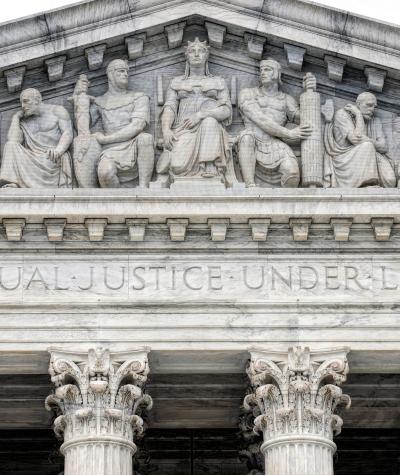Those who have been following the Supreme Court case, McCutcheon v. FEC, know that it is a challenge to the $123,200 federal limit on how much an individual can give, in aggregate, to candidates, political parties and PACs in a single election cycle. What they may not realize, however, is that the plaintiffs and some of the amici curiae who filed in their support—in particular Senator Mitch McConnell (R-KY), who has requested and received time to participate in the oral argument next week—have also made an even more extreme request of the Supreme Court: namely, that the Court overturn the key legal principle that the “standard of review” (what the government has to show to justify regulation) is different for limits on campaign contributions than limits on campaign expenditures.
While this request sounds legalistic in nature, if the plaintiffs and Senator McConnell are successful in convincing five Justices of this argument, then not only will the Court strike down the current aggregate contribution limits, but in the future it will be much easier for those seeking to remove all contribution limits and allowunlimited contributions to candidates and parties to challenge any contribution limit in court.
Since its 1976 decision in Buckley v. Valeo, the Supreme Court has found that restrictions on campaign expenditures represent a greater burden on First Amendment rights than do restrictions on campaign contributions. The theory is that a limit on a person’s campaign expenditures directly restricts that person’s own political speech, whereas a contribution limit merely limits the degree to which that individual can symbolically show support for another person’s speech. For these reasons, the Supreme Court has consistently applied “strict scrutiny” to expenditure restrictions and “less rigorous” scrutiny to contribution restrictions; in practice, this dual standard of review has meant that the Court has struck down expenditure limits while almost always upholding contribution limits.
Filing in support of the McCutcheon plaintiffs, Senator McConnell now asks the Court to “revisit the bifurcated standard of review for political contribution and expenditure limits and hold that strict scrutiny applies to both.” If the Supreme Court were to agree with this radical request, overturning almost forty years of precedent, McCutcheon could end up being more dangerous to American democracy than the recent Citizens United decision. A broad ruling adopting the “strict scrutiny” standard would not itself invalidate the base limits, but by changing the applicable standard of review, the decision would encourage legal challenges to all limits in the future, and make them much harder to defend. The McCutcheon case—and Senator McConnell’s amicus brief—thus may appear to target a single discrete law, but actually threatens to overturn a core principle of American campaign finance law since Buckley v. Valeo in 1976.
